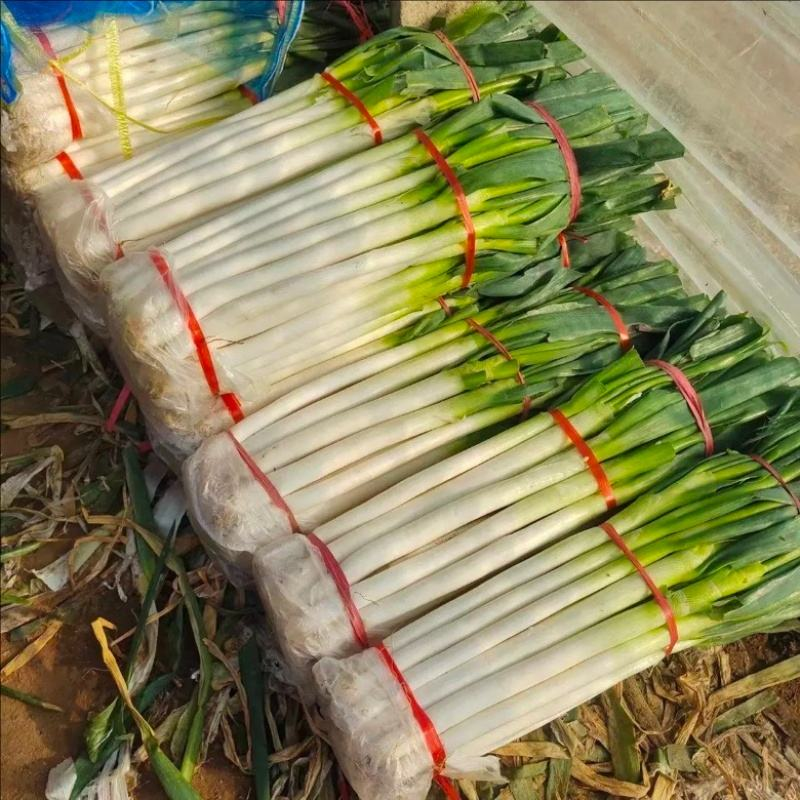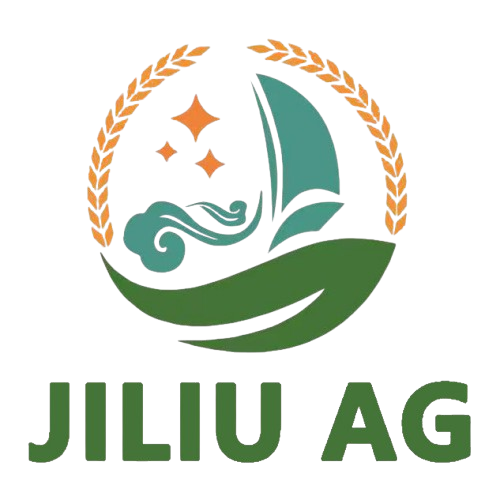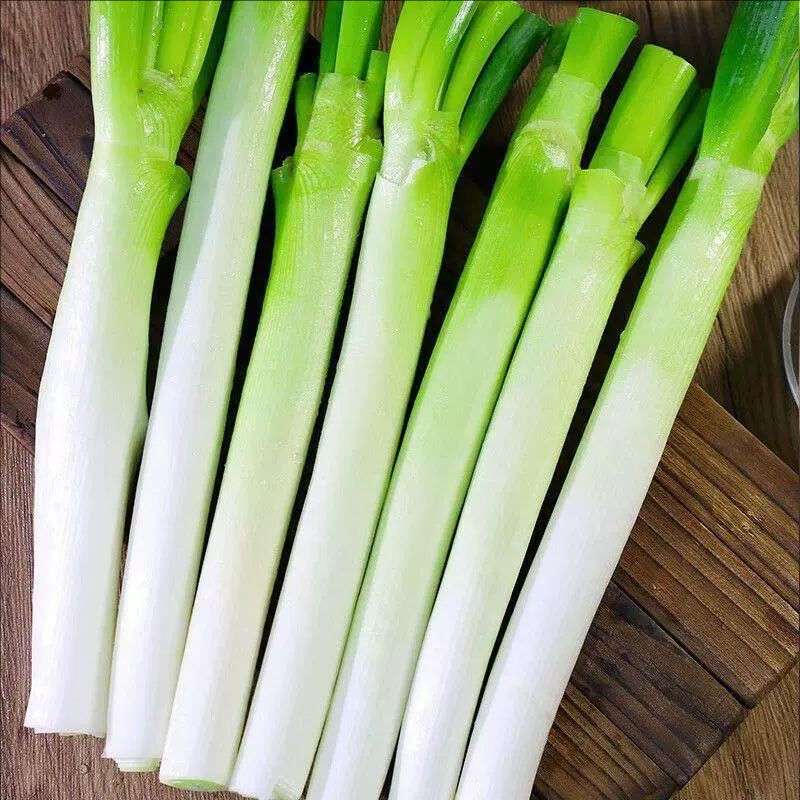What Global Buyers Look for in Scallion Export Partners
The global demand for fresh produce, including scallions, has been on the rise, especially as international markets seek reliable and consistent suppliers for high-quality ingredients. Scallions, often referred to as green onions, are a staple in kitchens worldwide, known for their versatile use in a variety of cuisines. For buyers in international markets, choosing the right scallion export partner is a crucial decision that impacts both their operations and customer satisfaction. In this blog, we’ll explore the key factors that global buyers consider when selecting scallion export partners and why these elements are essential for long-term business success.
The Importance of Quality in Scallion Exports
Consistency in Product Quality
Global buyers look for scallion suppliers who can deliver consistent quality. This means that the scallions must be fresh, free from damage, and meet the specific grading standards. Whether the buyer needs small, medium, or large bunches, consistency ensures that their supply chain operates smoothly without disruptions due to subpar products.
Post-Harvest Handling and Preservation Techniques
After the harvest, scallions must be handled carefully to maintain their freshness. Proper post-harvest handling, including cleaning, packaging, and storage, plays a significant role in maintaining quality. Export partners who use advanced preservation techniques such as refrigeration and controlled atmosphere storage are valued by international buyers who want to ensure that the scallions stay fresh during transit and storage.

Supply Chain Reliability and Timeliness
Shipping and Logistics Expertise
An experienced scallion exporter understands the complexities of international shipping. This includes choosing the right packaging, ensuring temperature-controlled transport, and selecting the most efficient shipping routes. Reliable exporters offer clear communication and updates throughout the shipping process, minimizing risks of delays and ensuring that the scallions reach their destination in optimal condition.
Flexibility and Capacity to Meet Demand
Another factor global buyers look for is the exporter’s capacity to handle fluctuating demand. Whether it’s seasonal demand spikes or unforeseen changes in order quantities, scallion exporters must be flexible and have the capacity to scale up or down accordingly. Exporters who have the ability to meet both large and small order volumes give buyers the confidence that they will always receive what they need, when they need it.
Trustworthiness and Transparency
Certifications and Compliance with International Standards
Global buyers value exporters who comply with international food safety and quality standards. Having certifications such as GlobalGAP, ISO, or Organic certification can significantly enhance an exporter’s credibility. These certifications reassure buyers that the scallions are grown and harvested according to global agricultural best practices, which is particularly important when dealing with food safety regulations in different countries.
Ethical Practices and Sustainability
Sustainability and ethical sourcing are becoming increasingly important to global buyers. Exporters who prioritize sustainable farming practices and offer transparency regarding their environmental and labor practices gain a competitive advantage. Buyers are more likely to work with suppliers who take environmental concerns seriously, such as reducing pesticide use, conserving water, and minimizing waste.
Pricing and Competitive Advantage
Cost-Effectiveness Without Compromising Quality
Buyers appreciate scallion exporters who offer cost-effective pricing strategies while still providing top-quality products. This balance between price and quality ensures that buyers can stay competitive in their markets. While price is a key factor, buyers will often look for suppliers who can provide long-term value through consistency and product quality.
Payment Terms and Flexibility
In addition to pricing, favorable payment terms are essential for buyers. Flexible payment options, such as deferred payments or bulk discounts, help international buyers manage cash flow and reduce financial strain. Exporters who offer a range of payment methods and work with buyers to create flexible terms can build stronger, more reliable partnerships.
Customer Service and Communication
Responsive and Proactive Communication
Timely and clear communication is essential in the export business. Buyers appreciate exporters who respond quickly to inquiries, provide accurate documentation, and keep them informed of any delays or issues. This builds trust and ensures that both parties are aligned throughout the business relationship.
Handling Issues and Complaints
When issues arise, whether related to quality, logistics, or other concerns, buyers want an exporter who can resolve the situation promptly. Exporters who handle complaints professionally and efficiently, offering solutions instead of excuses, create a sense of reliability and trustworthiness, which is essential for long-term partnerships.
Technology and Innovation in Scallion Export
Digital Tracking and Traceability Systems
Modern exporters are using digital systems to track shipments in real time. These systems help both the exporter and the buyer stay informed about the location of the scallions during transport. Traceability systems also allow buyers to track the journey of their goods from farm to table, offering transparency and ensuring that the products meet their standards.
Innovative Packaging Solutions
Packaging plays a crucial role in preserving the quality and freshness of scallions during transportation. Exporters who adopt innovative packaging solutions, such as breathable materials and vacuum-sealed packs, are highly valued by international buyers. These packaging innovations help maintain product integrity, reduce spoilage, and extend the shelf life of scallions.
FAQ
How do scallion exporters ensure the freshness of their products?
Scallion exporters maintain freshness by using proper post-harvest handling techniques, temperature-controlled storage, and efficient logistics to minimize transit time. They also use packaging that protects the scallions from damage and preserves their freshness during transportation.
What certifications should a reliable scallion exporter have?
Reliable scallion exporters should have certifications that comply with international quality standards such as GlobalGAP, ISO, or Organic certifications. These certifications ensure that the scallions meet food safety standards and are produced using sustainable practices.
Why is sustainability important in scallion exports?
Sustainability is increasingly important to global buyers as it reflects the ethical practices of an exporter. Buyers look for exporters who minimize environmental impact, use sustainable farming practices, and ensure fair labor practices, all of which contribute to a more ethical and transparent supply chain.
How can scallion exporters build trust with international buyers?
Scallion exporters can build trust by offering consistent product quality, transparent business practices, and excellent customer service. Building strong relationships through clear communication and reliable delivery is also key to fostering long-term partnerships with international buyers.

